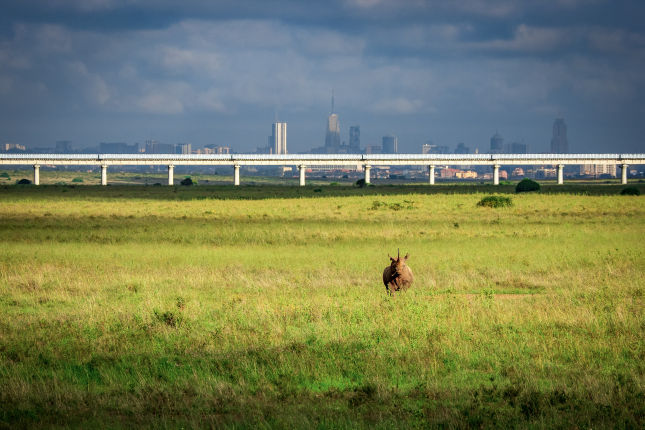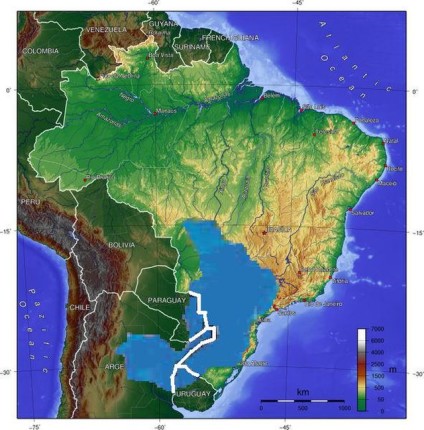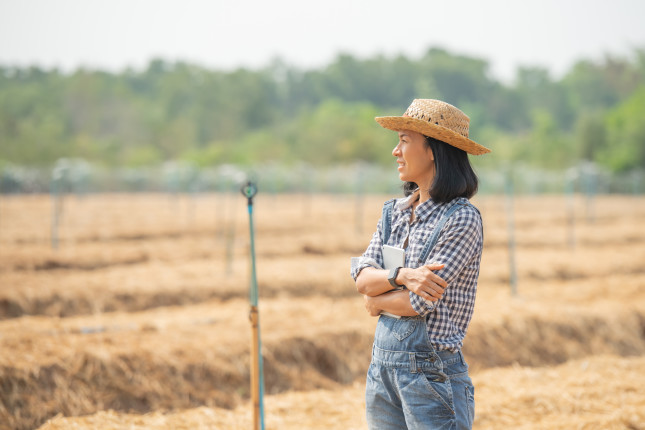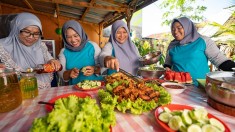-
The State of Play for Critical Mineral Policies: A Berlin Climate Security Conference Roundtable
›
The global transition to low-carbon energy is spurring new momentum to produce and secure the mineral inputs necessary for renewable technologies. Yet meeting demand may prove difficult. From electric cars to wind turbines, essential renewable energy technologies often require more minerals than fossil fuel-powered infrastructure. The International Energy Agency (IEA) projects that efforts to meet the goals of the Paris Agreement could lead to a fourfold increase in mineral demand by 2040.
-
ECSP Weekly Watch | October 16 – 20
› A window into what we are reading at the Wilson Center’s Environmental Change and Security Program
A window into what we are reading at the Wilson Center’s Environmental Change and Security ProgramWater Security Concerns in Gaza
Hamas’ surprise attack on Israel on October 7th led the Israeli government to cut off water supplies to the Gaza Strip with immediate effect. This has resulted in a clean water crisis that the UN warns is now a matter of life and death.
-
Chinese Rail Export’s Environmental Dilemma: Economic Gains or Green?
›China Environment Forum // Guest Contributor // Vulnerable Deltas // October 19, 2023 // By Keren ZhuMany developing countries today face the dual challenges of development and decarbonization, racing against climate change that makes the latter increasingly urgent. This dilemma brings China’s railway investments in Africa under the spotlight. Can stakeholders of these megaprojects achieve the goal of boosting host countries’ economies while mitigating the socio-environmental risks of these ventures?
-
Water Cooperation and Scientific Networks: A Work of Passion
›
Groundwater is relied upon for roughly half of global drinking water. And as climate change alters precipitation patterns and pollution of surface water continues to increase, our collective dependence on groundwater is likely to increase.
Getting ahead of the potential conflicts, or in some cases, catching up with them, requires an increase in effective groundwater cooperation and diplomacy. Yet the vast majority of transboundary aquifers exist without any form of agreement among the states that share them. This state of affairs leaves the aquifers—and the people who rely upon them—vulnerable to overexploitation, environmental degradation, and the risk of interstate conflict.
-
ECSP Weekly Watch | October 9 – 13
›
A window into what we are reading at the Wilson Center’s Environmental Change and Security Program
Organizing Regional Action on Climate Change, Health, and Environment
As the 2030 deadline for the Sustainable Development Goals looms, the World Health Organization has proposed a new regional framework that aims to build climate-resilient and sustainable health systems, improve the health sector’s access to climate funding, and build an evidence base for policymaking.
-
A Reminder from Israel and Gaza on the Importance and Limitations of Environmental Peacebuilding
›
I flew into Tel Aviv last Friday afternoon, primed for a week of meetings with Israeli and Palestinian environmentalists and officials. By sounding out these men and women in Jerusalem, the West Bank, and other parts of the region, I hoped to expand on past explorations of their transboundary cooperation, widely recognized as a model for environmental peacebuilding. Through an articulation of the successes that they––and their Jordanian peers–have had in bolstering water access, renewable energy, and environmental protection across their shared natural landscape, I was looking forward to telling a positive environmental conflict story—particularly one in a place that is often bereft of good news.
-
US and Chinese Farmers Adapting to a New Climate
›China Environment Forum // Cool Agriculture // Guest Contributor // October 12, 2023 // By Abigail OrdillasExtreme heat from climate change threatens food security in the world’s two food-producing superpowers. Climate adaptation for agriculture is a must. The US and China have much to share on climate-smart farming practices to help us both weather the storms and droughts. 2023 brought scorching heat waves that baked crops and livestock in China and the United States. In China, farm animals and fish died from extreme heat in June with some provinces enduring weeks of temperatures above 40°C (104°F). In one farm, a heatwave-triggered power outage resulted in hundreds of pigs suffocating to death after shed fans stopped working. -
Connecting the Dots: Women’s Economic Empowerment and Reproductive Health
›
In the fight for global gender equality, women’s economic empowerment and sexual and reproductive health and rights (SRHR) are intrinsically linked. This year, for instance, the Biden-Harris administration launched the U.S. Strategy on Global Women’s Economic Security. The interagency strategy is the first of its kind, and it lays out a vision in which women and girls around the world, in all their diversity, are able to fully, meaningfully, and equally contribute to, and benefit from, economic growth and global prosperity.
Showing posts from category *Main.










